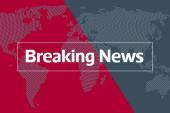What’s Going to Be Hot at ESC 2023?
With nine Hot Line sessions, four new guidelines, 3,500 abstracts, and more, time will be tight for visiting your favorite Vermeer.

Returning to the European Society of Cardiology (ESC) Congress at the end of August always feels bittersweet—summer’s grand finale mixed with a chance to mingle with colleagues and catch some of the biggest clinical trial results, live, across the spectrum of cardiology research.
This year’s meeting is making a triumphant “in-person” return to the Amsterdam, the city booked for 2020 that had its hosting honors stripped away by the COVID-19 pandemic. Held August 26 to 28, 2023, the congress is cardiology’s largest and, thanks in part to COVID, will for the second year in a row offer up a selection of virtual, simultaneous sessions alongside the live, plus many more available on-demand after the meeting.
The emphasis of ESC 2023 is heart failure (HF), which is the focus of nearly one-third of the 30 Hot Line studies. The ESC is also using the annual meeting to release a “focused update” to its 2021 heart failure guidelines, the first time it has taken such an interim step. Four other new guidelines will be released covering endocarditis, cardiovascular disease in the setting of diabetes, cardiomyopathies, and acute coronary syndromes.
Hot Line Hot Points
A total of nine Hot Line sessions, featuring the biggest trials and meta-analyses, are spread across the 4 days of the meeting: just one on Friday, two on Saturday, then three each on Sunday and Monday. Speaking with Roxana Mehran, MD (Icahn School of Medicine at Mount Sinai, New York, NY), for an in-depth preview of the upcoming congress on TCTMD’s Rox Heart Radio, ESC 2023 program chair John J. V. McMurray, MD (University of Glasgow, Scotland), and program committee member Victoria Delgado, MD, PhD (University Hospital Germans Trias i Pujol, Barcelona, Spain), emphasized the breadth of these high-profile studies.
|
Hear the full Rox Heart Radio preview: What to Watch for at ESC 2023 |
“We have trials on acute coronary syndromes, coronary intervention, atrial fibrillation, and . . . ablation, but also anticoagulation, acute and chronic heart failure, pacing and [cardiac resynchronization therapy], cardiac arrest and resuscitation, shock, amyloidosis, myocarditis, cardiovascular oncology, and even COVID-19,” said McMurray. “So there's a huge choice of things to pick from.”
Some of the most anticipated trials, McMurray said, are in the first Hot Line session of the meeting, on Friday. This opener includes STEP HFpEF, testing once-weekly semaglutide in people who have heart failure with preserved ejection fraction (HFpEF) and obesity. In the wake of the recent, highly positive, top-line results announced from the cardiovascular outcomes trial, SELECT, Mehran predicted this would be positive, too. “I don't know, but in HFpEF you would imagine so much of the weight-loss situation also is associated with less inflammation, less of everything that's bad for you.”
Also in Hot Line 1 is NOAH-AFNET 6, testing a non-vitamin K oral anticoagulant in patients with atrial high-rate episodes. This one, too, is important, said McMurray. “NOAH-AFNET 6 is going, I hope, to give us an answer to this,” he said, calling it “a problem that bugs almost all of us, I think, all the time.”
Close to his heart as a HF specialist is Hot Line 2, which features four heart failure trials, including the large, US-led HEART FID clinical trial, followed by an updated meta-analysis, both looking at the use of intravenous ferric carboxymaltose in heart failure, McMurray continued. “We’ve had some equivocal evidence in a couple of other recent moderate-size trials, so we need a clear answer,” he told Mehran, referring to IRONMAN and AFFIRM-AHF. “I think the beauty of this Hot Line is that there will also be a brand-new meta-analysis putting HEART FID and all the other iron trials together, so I think we're going to leave that session with the definitive answer about intravenous iron.”
Mehran herself highlighted Hot Line 4 which features two trials of intravascular imaging versus standard angiography, ILUMIEN IV and OCTOBER, a third trial—OCTIVUS—comparing IVUS to OCT-guided PCI, and a fourth study providing a network meta-analysis of all three modalities. This last, said Mehran, “is going to look at which imaging modality is best . . . for improving outcomes in patients undergoing PCI. That to me is a really hot day.”
There’s plenty more for interventionalists. STOPDAPT-3 exploring an aspirin-free antithrombotic strategy in PCI, ECLS SHOCK testing extracorporeal life support in acute MI complicated by cardiogenic shock, and FIRE testing physiology-guided complete PCI in older MI patients will all be released in Hot Line 3; MULTISTARS AMI testing multivessel immediate versus staged complete PCI will be unveiled in Hot Line 6; and OPT-BIRISK looking at whether clopidogrel monotherapy beats dual antiplatelet therapy in high-risk patients post-PCI heads up Hot Line 7.
Hottest for electrophysiologists may be Hot Line 5, featuring ADVENT, Boston Scientific’s randomized controlled trial of its Farapulse pulsed-field ablation catheter versus radiofrequency and cryoballoon ablation. ADVENT follows PULSED AF and inspIRE, which tested other manufacturers’ pulsed-field devices, released earlier this year; both, notably, were single-arm studies. Hot Line 6 features CASTLE-HTx testing catheter ablation in end-stage heart failure patients with atrial fibrillation, while Hot Line 7 showcases DANPACE II focused on atrial pacing in the setting of sinus node disease.
Conspicuous by their absence among the Hot Line trials are any major studies in primary prevention or risk factor management, but myocarditis (ARAMIS, in Hot Line 7), out-of-hospital cardiac arrest (ARREST, in Hot Line 5); cardiothoracic surgery (COP-AF in Hot Line 1); and cardio-oncology (ONCO DVT, in Hot Line 9) all get a moment in the sun.
Speaking of sunlight, each of the Hot Line trials gets a second chance to shine during dedicated “Ask the Trialists” sessions. For the first time this year, said McMurray, these sessions will permit up to five steering committee members as well as the principal investigator to answer questions and gauge the impact of their work. “Trials are run by a large group of people and a huge amount of effort over a very long time goes into them and they have to condense everything, and one person stands up and speaks for the group,” McMurray said. “We wanted to give people more time to ask the questions they want to ask and to meet the other people involved in the trial.”
Beyond the Hot Line Sessions
Other cardiology subspecialties get more in-depth coverage among the 17 Late-Breaking Science sessions, including clinical trial updates and registries focused on lipid-lowering and prevention, cardiovascular risk, valve disease and hypertrophic cardiomyopathy, imaging, special populations, and more. Beyond these are the 3,500 abstracts to be presented by over 3,000 investigators from 86 different countries. For a mix of entertainment and science, there are 18 “Great Debates,” which McMurray described as the “most fun” to plan. These include topics such as embolic protection, artificial intelligence, and the targeting of triglycerides to reduce CV risk.
As Delgado told Mehran for Rox Heart Radio, an overarching aim of this year’s program design was to emphasize interconnectivity across cardiovascular subspecialties. For example, a session that on the surface looks to be focused on heart failure will also incorporate things like imaging, interventions, or electrophysiology, she said. “So that speaks to the entire cardiology community in a way: not focusing much on the techniques only, but giving the broad spectrum, the broad view, of how you use these techniques in clinical practice so that everybody can speak the same language.”
For those attending in person, the congress will take place at RAI Amsterdam, reachable by metro on line 52 (Amsterdam Europaplein stop). Conference-goers are also encouraged to join the throngs traveling in on two wheels, with the meeting organizers offering bike rental discounts with the code “ESCCongress2023.”
In all, 106 sessions out of the 801 ESC 2023 sessions will be broadcast live via eight channels over the course of the meeting. All the Hot Line presentations, guideline sessions, and “Great Debates,” but just three out of 17 late-breaking science slots, will be live streamed—to figure out what sessions will be live streamed for remote attendees, the program can be filtered for “Online Live.”
The TCTMD news team is attending ESC 2023 in person. Follow news as it breaks on TCTMD.com, and drop me a line or reach out on Twitter if you have story tips or suggestions.
Shelley Wood was the Editor-in-Chief of TCTMD and the Editorial Director at the Cardiovascular Research Foundation (CRF) from October 2015…
Read Full Bio




Comments